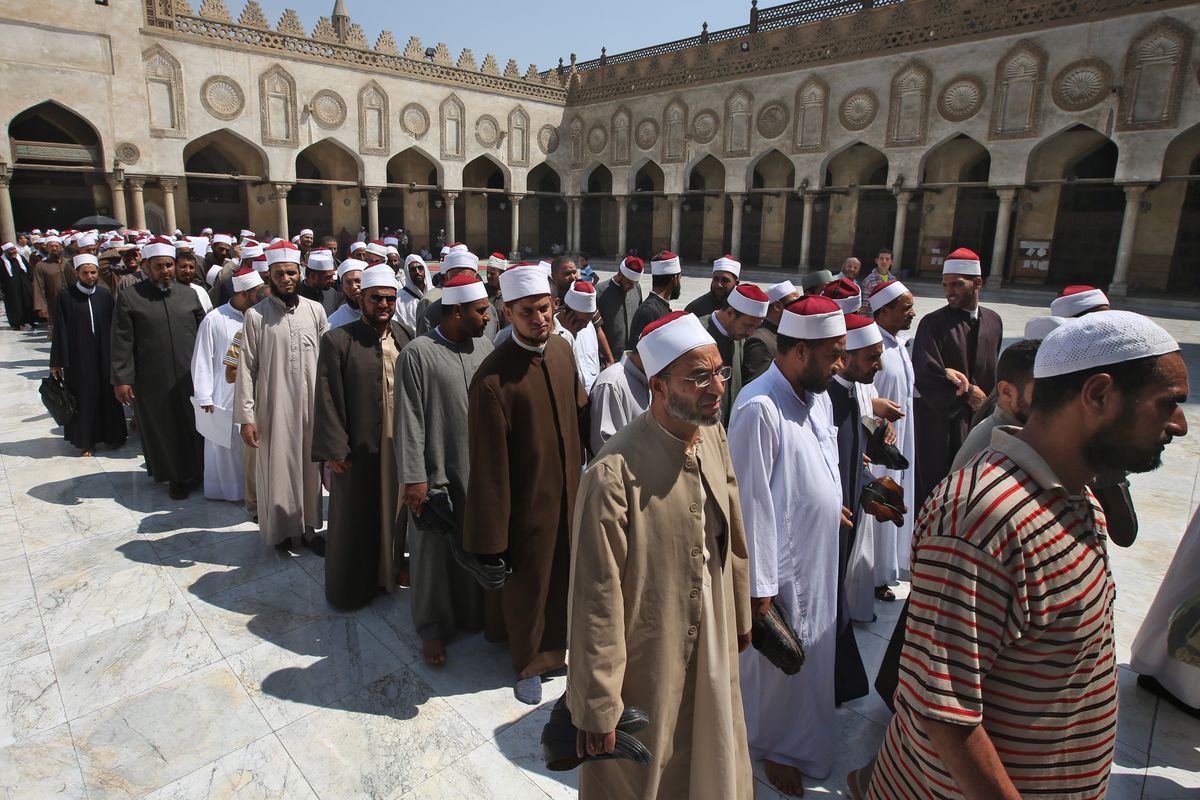Egyptian army chief defends ousting Morsi

CAIRO – Facing unrelenting pressure from Muslim Brotherhood protesters, Egypt’s military chief sought to justify his decision to remove Mohammed Morsi from office, saying Sunday in a televised speech that the Islamist leader had violated his popular mandate and antagonized state institutions.
The comments by Gen. Abdel-Fattah el-Sissi – his first since the president’s ouster nearly two weeks ago – came as the designated interim prime minister pushed ahead with talks to form a new Cabinet this week.
Reform advocate Mohamed ElBaradei was sworn in as Egypt’s interim vice president for international relations on Sunday. The move reinforces the role of liberals in the new leadership who strongly oppose the Brotherhood. Several secular-minded candidates also have been approached to lead the foreign, finance, culture, information and other key ministries.
The United States sent its No. 2 diplomat in the State Department, William Burns, to Cairo to meet with interim government officials as well as civil society and business leaders. Burns is the first high-level American official to visit since Morsi’s ouster.
The State Department said Burns would underscore U.S. support for the Egyptian people and a transition leading to an inclusive, democratically elected civilian government. The United States has called for Morsi’s release. Since his ouster, Morsi has been held incommunicado at an undisclosed location.
El-Sissi said the armed forces acted to remove Morsi on July 3 according to the will of the people as the country was sliding toward deeper polarization and more violence. The Islamist leader was the first democratically chosen leader after a narrow victory in elections last year.
Brotherhood spokesman Gehad el-Haddad responded to el-Sissi’s remarks, saying the military had no right to act on behalf of the people of Egypt except through “orders of their elected commander in chief,” meaning Morsi. In comments posted on Twitter, he said the military also has no right to decide which protest is worthy enough to represent the people.
El-Sissi said Morsi “entered into a conflict with the judiciary, the media, the police and the public opinion. Then (he) also entered into a conflict with the armed forces.” He didn’t elaborate on the nature of the conflict but said comments about the military offended “and were considered a stab to the national pride.”
El-Sissi, speaking to an auditorium filled with military officers, said the armed forces could no longer stand on the sidelines as millions of Egyptians took to the streets to call for the Islamist leader to step down over allegations he was abusing his power.
The military chief said he frequently advised Morsi and finally reached out to him before giving him a 48-hour ultimatum to reconcile with opponents and address public demands. He said he sent two envoys, including then Prime Minister Hesham Kandil and a trusted legal expert, urging the president to hold a referendum on whether voters still supported his presidency, but the suggestion was rejected out of hand.